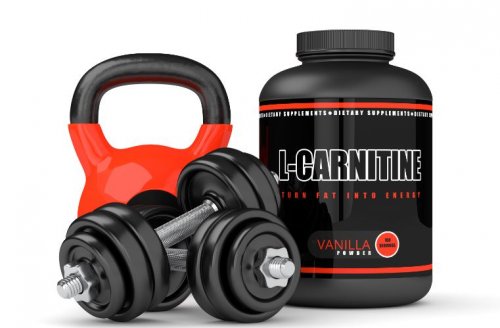Choosing Between Thermogenics And Fat Burners

One of the main reasons people tend to exercise is to burn fat and to feel better inside and out. At some point, you might feel like you need a helping hand. Luckily, you can opt for thermogenics and fat burners. But which one should you choose? In this article, we’ll discuss the differences between thermogenics and fat burners.
What are thermogenics?
Thermogenics are fat burners that only work if you combine them with a proper diet and an exercise that you’re already doing. As such, thermogenics would be an ideal complement to help you reach your goals.
They directly impact your metabolism by raising your body temperature, which is why it has to work harder to get your body back to its usual state. The issue is that there can sometimes be side effects such as, tachycardia and aggressiveness.

There are many kinds of thermogenics on the market. Some are made of natural fat burners, like caffeine. By comparing options, you can easily choose the one that’s best for you.
How fat burners work
Fat burners focus on fat burn and accelerate the process by eliminating fat from the body more quickly. For example, green or red tea, and L-carnitine are enzymes and natural substances that boost fat burn.
Though it’s true that you could consume them naturally, these formulas and supplements are more concentrated and therefore, more effective.
Even if you’d like to eliminate fat from a specific area, fat burners work on a general level rather than a specific one. Your body converts fat into energy and stores whatever it doesn’t use, in areas like your thighs, hips, and abs (in women).
L-carnitine
Among thermogenics and fat burners, L-carnitine is the most popular fat burner, while there isn’t a clear favorite among thermogenics.
L-carnitine is an amino acid that your body makes and absorbs from certain foods. It helps to carry the fat that your body will convert into energy, so it won’t store it in any part of your body.
Furthermore, it inhibits the destruction of muscle mass and optimizes glycogen. It reduces muscle damage caused by exercise and increases your blood oxygen levels. L-carnitine is perfect for those who want to lose weight and burn fat without losing muscle, while building resistance.
Decisions, decisions: thermogenics and fat burners
Once you get to that point, you’ll have to decide between thermogenics and fat burners. Your choice will depend on many factors, such as how much time you’ve already been exercising for.
For example, if you haven’t exercised in over eight months, it’s better that you choose L-carnitine. Why is this? Because your heart rate will rise considerably when you exercise and thermogenics will only make that worse. That could lead to an almost-constant tachycardia, and you could feel symptoms of hypertension.
On the other hand, there are those who exercise daily or regularly. If you fall into this category, we recommend thermogenics. Since your body is already used to exercising, there wouldn’t be any issues with taking thermogenics.
Of course, this doesn’t mean that side effects can’t come up. If they do, make sure you stop using this supplement.

Another factor to consider is, how quickly you’d like to see results. L-carnitine offers long-term results. In fact, you won’t usually see results until about six months. Thermogenics, on the other hand, can give you good results quickly. Still, neither will work without diet and exercise.
We hope this information will help you choose between thermogenics and fat burners and that you find the perfect solution for your goals.
One of the main reasons people tend to exercise is to burn fat and to feel better inside and out. At some point, you might feel like you need a helping hand. Luckily, you can opt for thermogenics and fat burners. But which one should you choose? In this article, we’ll discuss the differences between thermogenics and fat burners.
What are thermogenics?
Thermogenics are fat burners that only work if you combine them with a proper diet and an exercise that you’re already doing. As such, thermogenics would be an ideal complement to help you reach your goals.
They directly impact your metabolism by raising your body temperature, which is why it has to work harder to get your body back to its usual state. The issue is that there can sometimes be side effects such as, tachycardia and aggressiveness.

There are many kinds of thermogenics on the market. Some are made of natural fat burners, like caffeine. By comparing options, you can easily choose the one that’s best for you.
How fat burners work
Fat burners focus on fat burn and accelerate the process by eliminating fat from the body more quickly. For example, green or red tea, and L-carnitine are enzymes and natural substances that boost fat burn.
Though it’s true that you could consume them naturally, these formulas and supplements are more concentrated and therefore, more effective.
Even if you’d like to eliminate fat from a specific area, fat burners work on a general level rather than a specific one. Your body converts fat into energy and stores whatever it doesn’t use, in areas like your thighs, hips, and abs (in women).
L-carnitine
Among thermogenics and fat burners, L-carnitine is the most popular fat burner, while there isn’t a clear favorite among thermogenics.
L-carnitine is an amino acid that your body makes and absorbs from certain foods. It helps to carry the fat that your body will convert into energy, so it won’t store it in any part of your body.
Furthermore, it inhibits the destruction of muscle mass and optimizes glycogen. It reduces muscle damage caused by exercise and increases your blood oxygen levels. L-carnitine is perfect for those who want to lose weight and burn fat without losing muscle, while building resistance.
Decisions, decisions: thermogenics and fat burners
Once you get to that point, you’ll have to decide between thermogenics and fat burners. Your choice will depend on many factors, such as how much time you’ve already been exercising for.
For example, if you haven’t exercised in over eight months, it’s better that you choose L-carnitine. Why is this? Because your heart rate will rise considerably when you exercise and thermogenics will only make that worse. That could lead to an almost-constant tachycardia, and you could feel symptoms of hypertension.
On the other hand, there are those who exercise daily or regularly. If you fall into this category, we recommend thermogenics. Since your body is already used to exercising, there wouldn’t be any issues with taking thermogenics.
Of course, this doesn’t mean that side effects can’t come up. If they do, make sure you stop using this supplement.

Another factor to consider is, how quickly you’d like to see results. L-carnitine offers long-term results. In fact, you won’t usually see results until about six months. Thermogenics, on the other hand, can give you good results quickly. Still, neither will work without diet and exercise.
We hope this information will help you choose between thermogenics and fat burners and that you find the perfect solution for your goals.
All cited sources were thoroughly reviewed by our team to ensure their quality, reliability, currency, and validity. The bibliography of this article was considered reliable and of academic or scientific accuracy.
- Hann, V. B., Martins, M. de S., & Dias, R. da L. (2014). Thermogenics: a systematic review about the use of coconut oil, safflower oil and CLA/Termogenicos: uma revisao sistematica sobre o uso de oleo de coco, oleo de cartamo e cla. Revista Brasileira de Nutrição Esportiva, 8, 10+. https://go.gale.com/ps/i.do?id=GALE%7CA391596473&sid=googleScholar&v=2.1&it=r&linkaccess=abs&issn=19819927&p=AONE&sw=w&userGroupName=anon~3e03bc30
- Jordá, M. J. (2007). Diccionario práctico de gastronomía y salud: un viaje riguroso y desenfadado por el mundo de la cultura gastronómica. Ediciones Díaz de Santos. http://190.57.147.202:90/jspui/bitstream/123456789/366/1/diccionario%20practico%20de%20gastronomia.pdf
- Valeriano da Silva, W., de Andrade Gomes Silva, MI, Tavares Toscano, L., Dantas de Oliveira, KH, de Lacerda, LM, & Silva, AS (2014). Prevalencia de la suplementación y efectos adversos en practicantes de ejercicio físico. Nutrición Hospitalaria , 29 (1), 158-165.
This text is provided for informational purposes only and does not replace consultation with a professional. If in doubt, consult your specialist.








